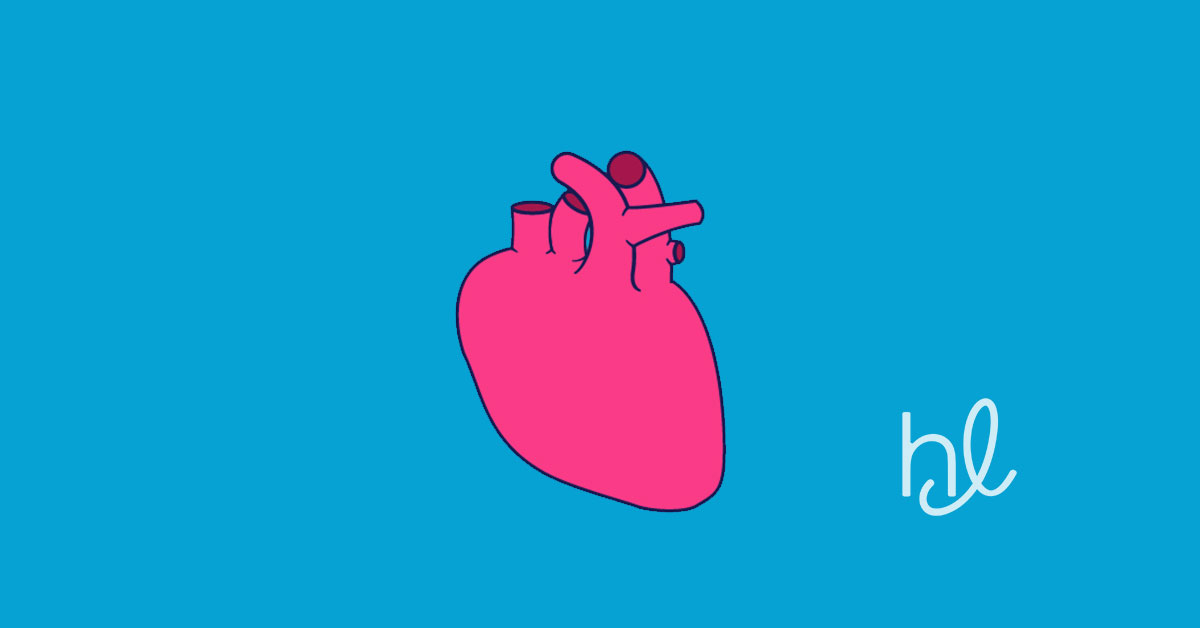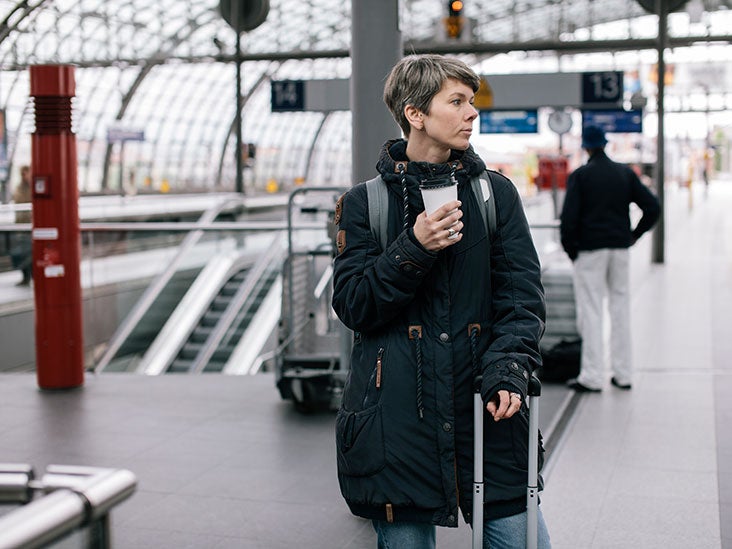Stop Telling Chronically Ill People to 'Stay Positive'
'Have you considered listing all the positive things happening in your life?' my therapist asked me.
I winced a bit at my therapist's words. Not because I thought gratitude for the good in my life was a bad thing, but because it glossed over the complexities of all that I was feeling.
I was talking to her about my chronic illnesses and the way it impacts my depression — and her response felt invalidating, to say the least.
She wasn't the first person to suggest this to me — not even the first medical professional. But every time someone suggests positivity as a solution to my pain, it feels like a direct hit to my spirit.
Sitting in her office I began to question myself: Maybe I do need to be more positive about this? Maybe I shouldn't be complaining about these things? Maybe it isn't as bad as I think?
Maybe my attitude is making all this worse?
Positivity culture: Because it could be worse, right?
We live in a culture steeped in positivity.
Between memes spouting messages meant to uplift ('Your life only gets better when you get better!' 'Negativity: Uninstalling'), online talks extolling the virtues of optimism, and countless self-help books to choose from, we are surrounded by the push to be positive.
We are emotional creatures, capable of experiencing a wide range of feelings. However, the emotions that are deemed preferable (or even acceptable) are far more limited.
Putting on a happy face and presenting a cheery disposition to the world — even when going through really tough stuff — is applauded. People who push through hard times with a smile are praised for their bravery and courage.
Conversely, people who express their feelings of frustration, sadness, depression, anger, or grief — all very normal parts of the human experience — are often met with comments of 'it could be worse' or 'maybe it would help to change your attitude about it.'
This positivity culture transfers over to assumptions about our health, too.
We're told that if we have a good attitude, we will heal faster. Or, if we're sick, it's because of some negativity we put out into the world and we need to be more conscious of our energy.
It becomes our job, as sick people, to make ourselves well through our positivity, or at the very least to have a perpetually good attitude about the things we're going through — even if that means hiding what we're truly feeling.
I admit that I have bought into many of these ideas. I've read the books and learned about the secret to manifesting good into my life, to not to sweat the small stuff, and how to be a badass. I've attended lectures about visualizing all I want into existence and listened to podcasts about choosing happiness.
For the most part I see the good in things and people, look for the silver lining in unpleasant situations, and see the glass as half full. But, despite all that, I'm still sick.
I still have days where I feel most every emotion in the book except for the positive ones. And I need that to be okay.
Chronic illness can't always be met with a smile
While positivity culture is intended to be uplifting and helpful, for those of us dealing with disabilities and chronic illness, it can be detrimental.
When I'm on day three of a flare-up — when I can't do anything but cry and rock because the meds can't touch the pain, when the noise of the clock in the next room feels excruciating, and the cat's fur against my skin hurts — I find myself at a loss.
I'm grappling with both the symptoms of my chronic illnesses, as well as guilt and feelings of failure associated with the ways I've internalized the messages of positivity culture.
And in that way, people with chronic illnesses like mine just can't win. In a culture that demands we face chronic illness inauthentically, we're asked to deny our own humanity by concealing our pain with a 'can-do' attitude and a smile.
Positivity culture can often be weaponized as a way of blaming people with chronic illnesses for their struggles, which many of us go on to internalize.
More times than I can count, I've questioned myself. Did I bring this on myself? Am I just having a bad outlook? If I'd meditated more, said more kind things to myself, or thought more positive thoughts, would I still be here in this bed right now?
When I then check my Facebook and a friend has posted a meme about the power of a positive attitude, or when I see my therapist and she tells me to list the good things in my life, these feelings of self-doubt and self-blame are just reinforced.
'Not fit for human consumption'
Chronic illness is already a very isolating thing, with most people not understanding what you're going through, and all the time spent in bed or homebound. And the truth is, positivity culture adds to the isolation of chronic illness, magnifying it.
I often worry that if I express the reality of what I'm going through — if I talk about being in pain, or if I say how frustrated I am at having to stay in bed — that I'll be judged.
I've had others say to me before that 'It's no fun to talk to you when you're always complaining about your health,' while still others have remarked that me and my illnesses were 'too much to handle.'
On my worst days, I started to pull back from people. I'd keep quiet and not let anyone know what I was going through, except for those closest to me, like my partner and child.
Even to them, though, I'd jokingly say that I wasn't 'fit for human consumption,' trying to maintain some humor while also letting them know it may be best to just leave me alone.
Truthfully, I felt shame about the negative emotional state I was in. I'd internalized the messages of positivity culture. On days where my symptoms are especially severe, I don't have the ability to put on a 'happy face' or gloss over the things going on with me.
I learned to hide my anger, grief, and hopelessness. And I held onto the idea that my 'negativity' made me a burden, instead of a human being.
We are allowed to be authentically ourselves
Last week, I was lying in bed in the early afternoon — lights off, curled up in a ball with tears quietly running down my face. I was hurting, and I was depressed about hurting, especially when I thought about being bed-bound on a day I'd had so much planned.
But there was a shift that happened for me, ever so subtle, when my partner walked in to check on me and asked me what I needed. They listened as I told them all the things I was feeling and held me as I cried.
When they left, I didn't feel so alone, and even though I was still hurting and feeling low, it somehow felt more manageable.
That moment acted as an important reminder. The times when I tend to isolate are also the times that I actually need my loved ones around me the most — when what I want, more than anything, is to be able to be honest about how I'm really feeling.
Sometimes all I really want to do is have a good cry and complain to someone about how hard this is — someone to just sit with me and witness what I'm going through.
I don't want to have to be positive, nor do I want someone to encourage me to change my attitude.
I just want to be able to express my full range of emotions, to be open and raw, and have that be totally okay.
I'm still working on slowly unravelling the messages that positivity culture has ingrained in me. I still have to consciously remind myself that it's normal and perfectly okay to not be optimistic all the time.
What I've come to realize, though, is that I am my most healthy self — both physically and emotionally — when I give myself permission to feel the full spectrum of emotions, and surround myself with people who support me in that.
This culture of relentless positivity won't change overnight. But it's my hope that, the next time a therapist or a well-meaning friend asks me to look at the positive, I'll find the courage to name what I need.
Because every one of us, especially when we're struggling, deserves to have the full spectrum of our emotions and experiences witnessed — and that doesn't make us a burden. That makes us human.
Angie Ebba is a queer disabled artist who teaches writing workshops and performs nationwide. Angie believes in the power of art, writing, and performance to help us gain a better understanding of ourselves, build community, and make change. You can find Angie on her website, her blog, or Facebook.
-
 6 interesting genetic traits that children will inherit from their parents
6 interesting genetic traits that children will inherit from their parents
-
 7 effects of asparagus on child development
7 effects of asparagus on child development
-
 Does cutting blood hair for babies bring good luck?
Does cutting blood hair for babies bring good luck?
-
 The more babies eat, the higher the height they develop, especially the second kind
The more babies eat, the higher the height they develop, especially the second kind
-
 Children with chicken pox should eat to quickly recover from the disease, without leaving a deep scar?
Children with chicken pox should eat to quickly recover from the disease, without leaving a deep scar?
-
 The more food is cooked, the better it can be for health, especially the second type
The more food is cooked, the better it can be for health, especially the second type
-
 Cancer Is Depressing. So Why See a Therapist?
Cancer Is Depressing. So Why See a Therapist?
-
 How Do I Cope with 'Chemo Brain' Without Feeling Ashamed?
How Do I Cope with 'Chemo Brain' Without Feeling Ashamed?
-
 What a Daily Collagen Protein Shake Can Do for Your Skin and Bones
What a Daily Collagen Protein Shake Can Do for Your Skin and Bones
-
 Anoro: Side Effects, Dosage, Cost, and More
Anoro: Side Effects, Dosage, Cost, and More
-
 Traveling Sick: Tips for Flying with a Cold, Sick Child, and More
Traveling Sick: Tips for Flying with a Cold, Sick Child, and More
-
 Just calmly sleeping in this way makes cancer easy to catch - difficult to treat, many Vietnamese people suffer without knowing
Just calmly sleeping in this way makes cancer easy to catch - difficult to treat, many Vietnamese people suffer without knowing






























